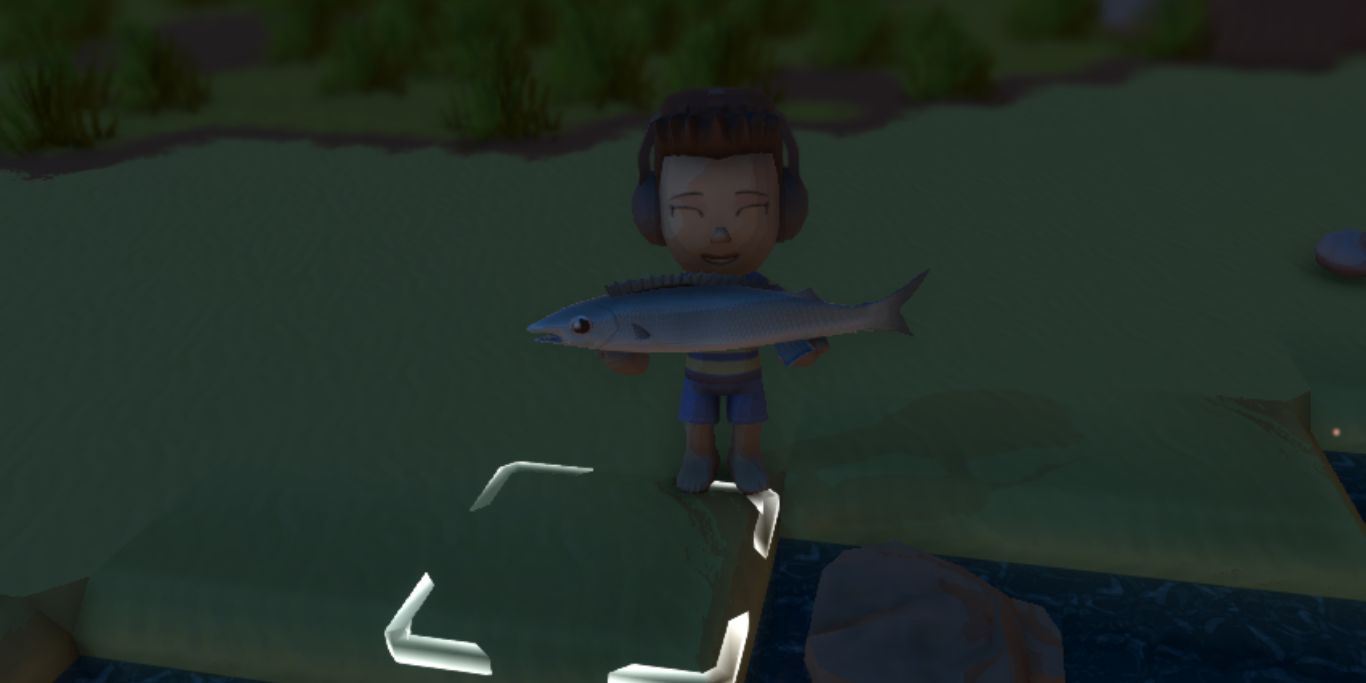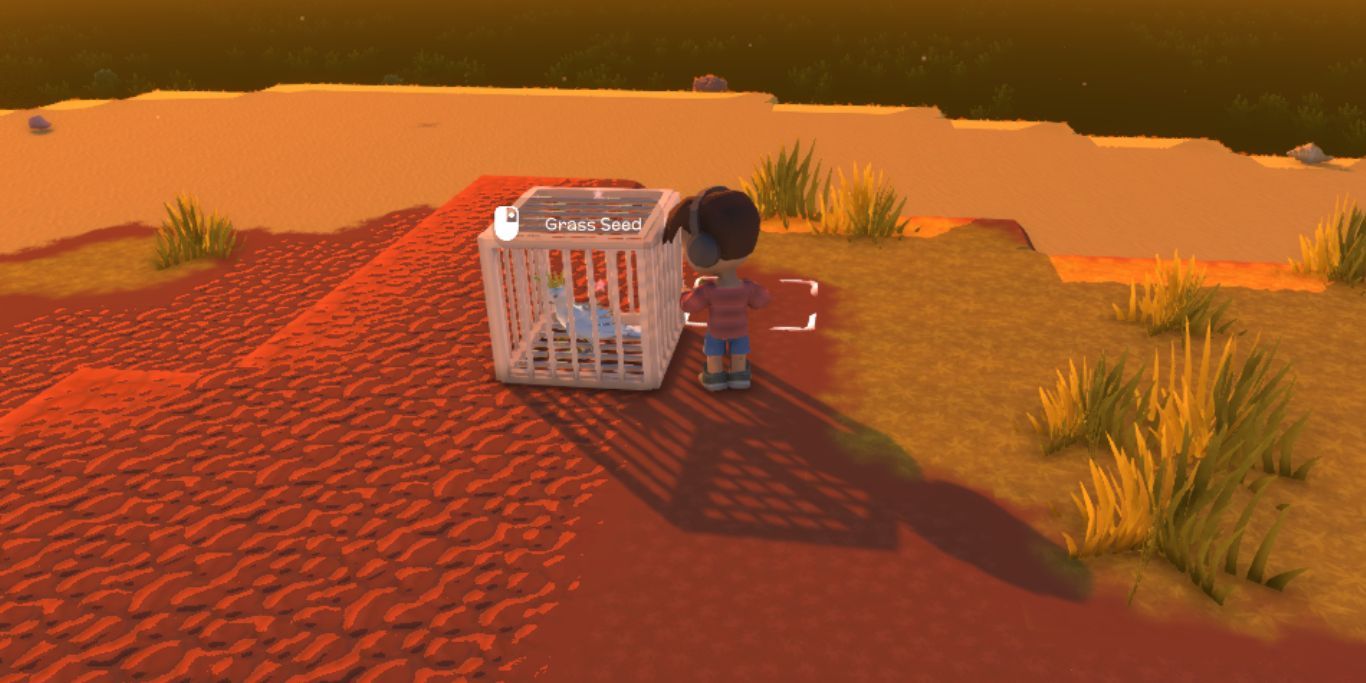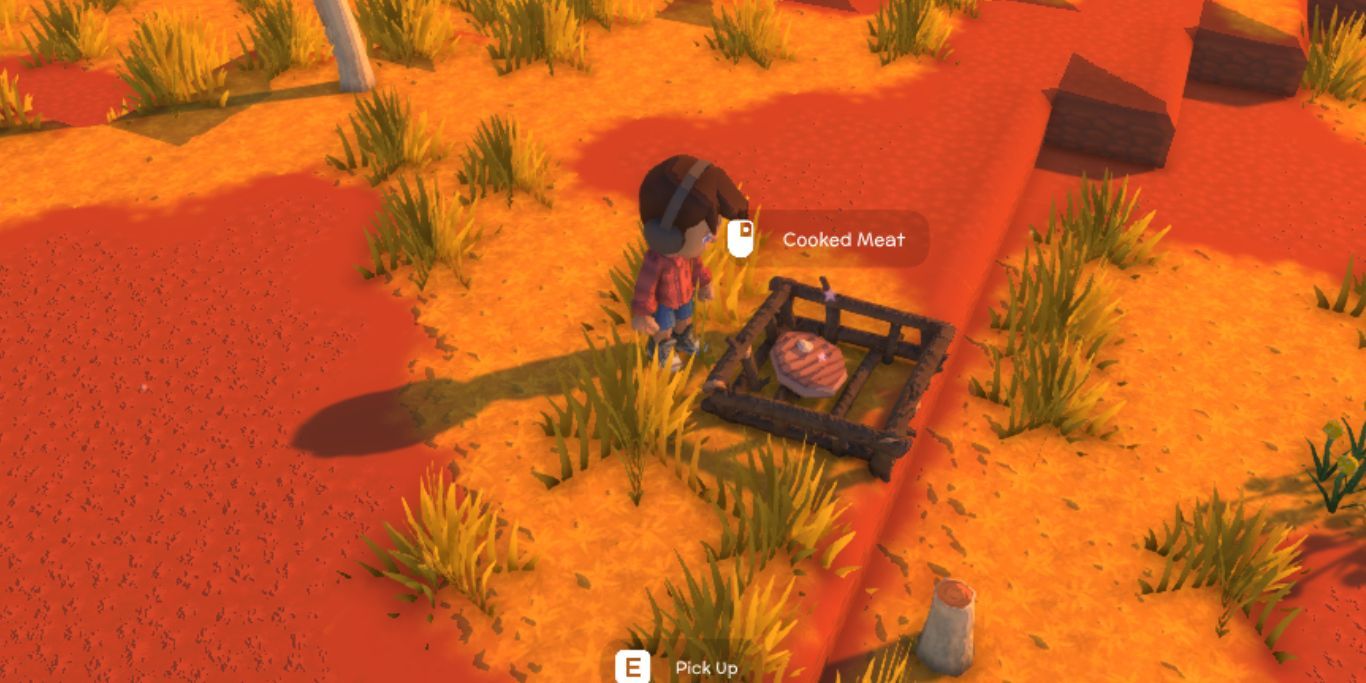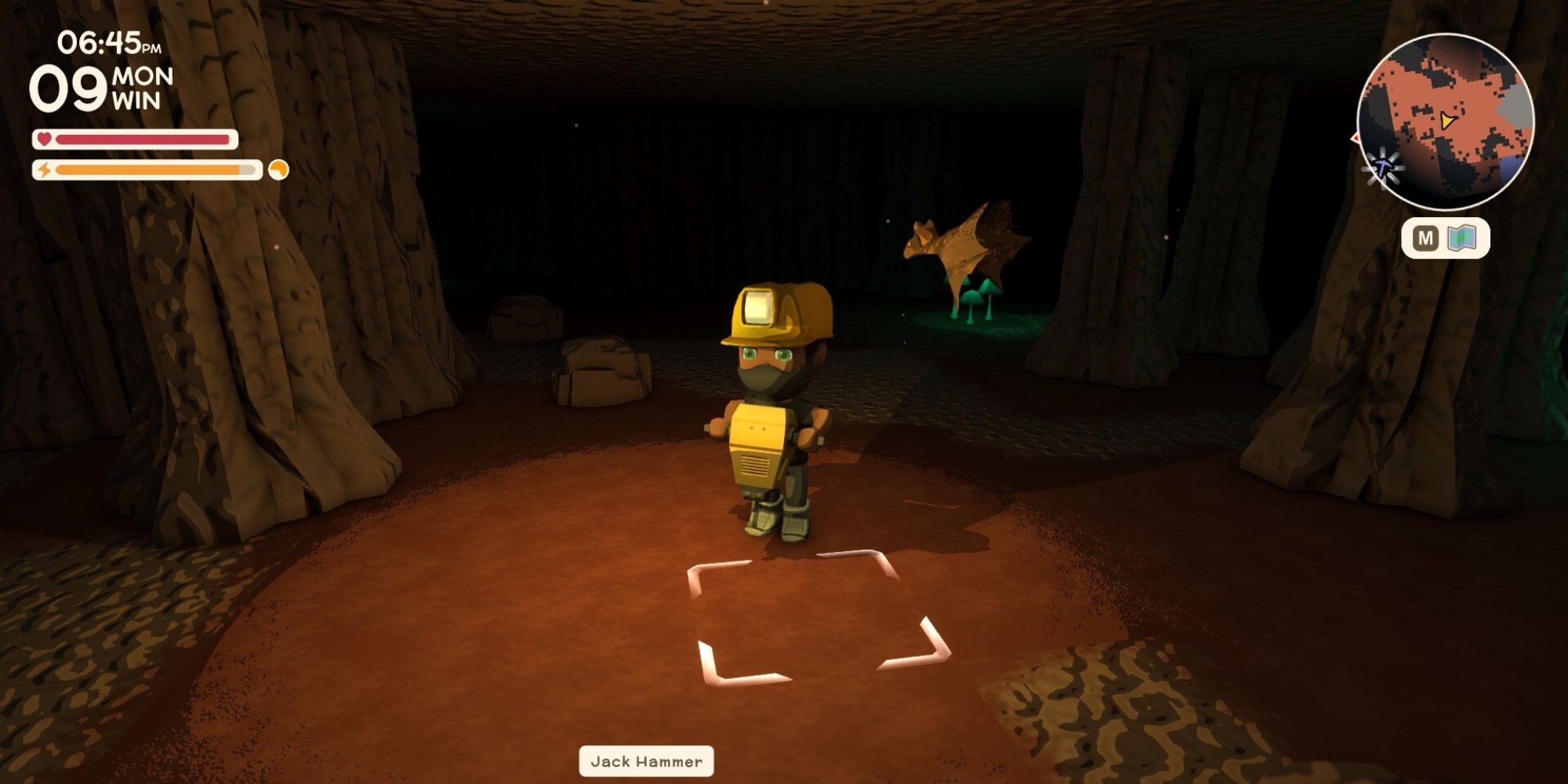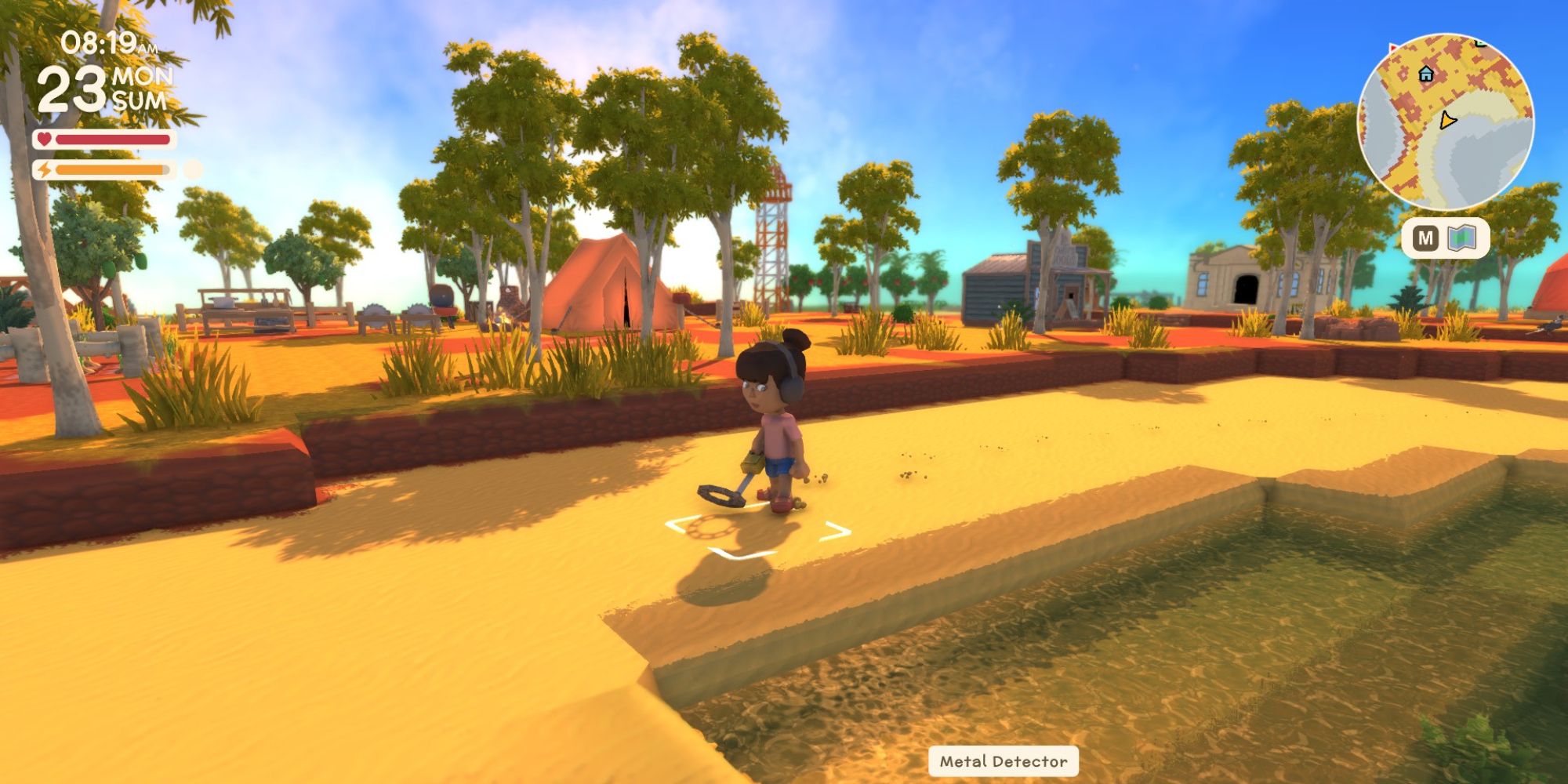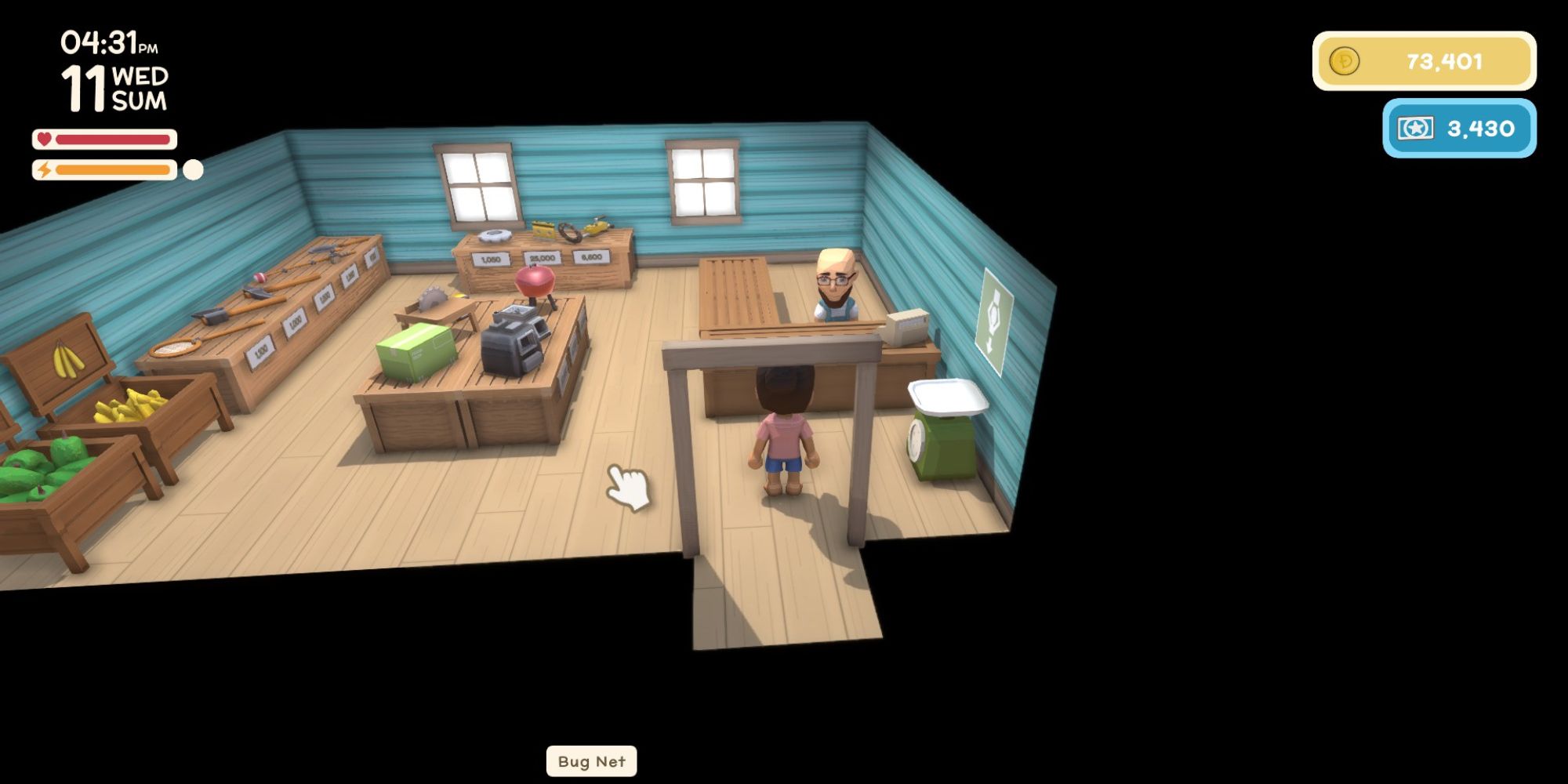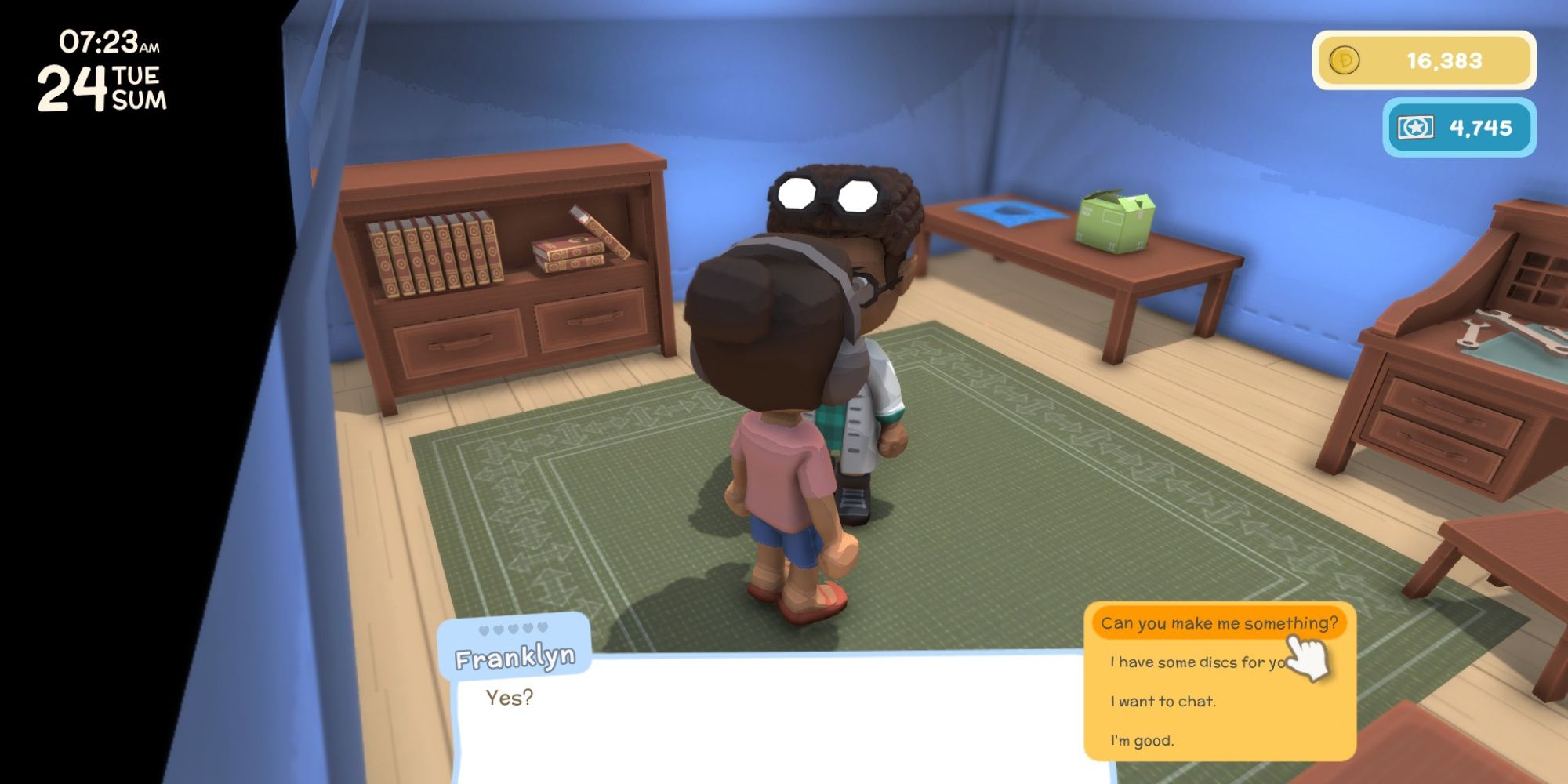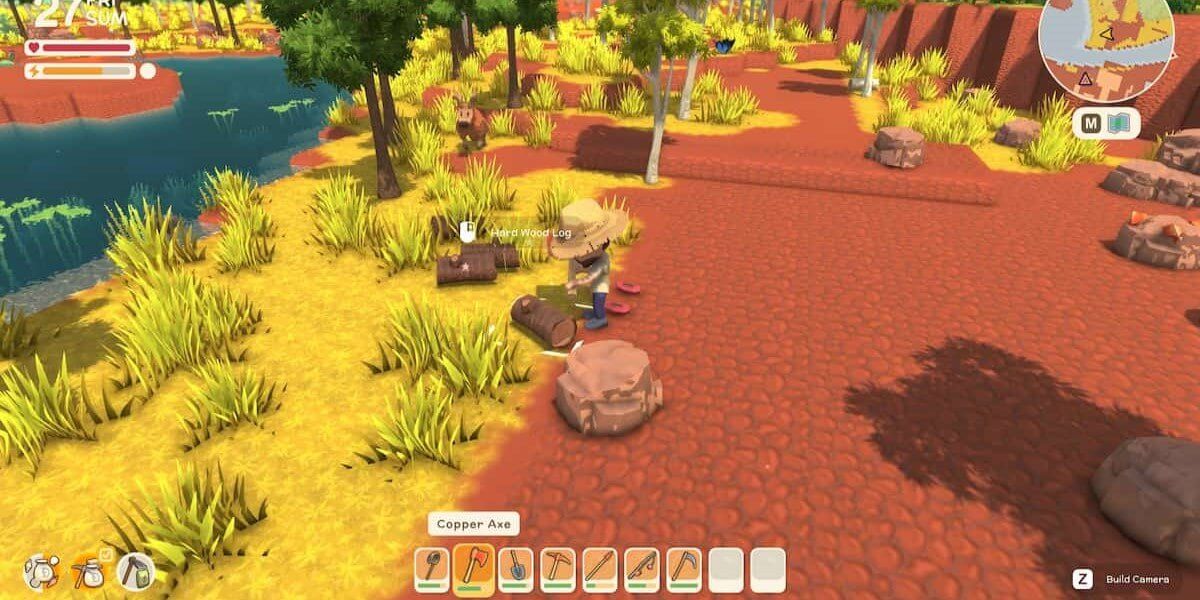
[ad_1]
In Dinkum you take on the Australian wild, exploring nature, desert, and forests, settling the land, and building a home. In the process of getting your setup going, you’ll also help build the community around you up – like helping John build his shop.
Building the community is helpful to you as much as building your own home, mainly because the people that will buy and sell goods with you will need their businesses up and running before the option is available to you. That said, once everything is flowing, there are a lot of options for starting a strong economy – especially where you benefit.
9 Fish
Like in reality, you can get a fishing license in Dinkum that gives you access to fishing areas. As long as you have John’s shop in town, you can swing by there to get a fishing rod and then go catch as many fish as you can.
Different fish will net different prices, obviously, but you’ll take them back to John and he’ll buy them for his market. One of the more expensive fish you can catch is the Barracuda, and that will bring in $16,000 for your bank. There are other fish that will bring in less cash, like the River Bass at $2,738.
8 Animals
Like with fishing, you’ll need a trapping license to catch animals in the wild. Once you’re legally permitted, you’ll be able to set traps for animals, birds, and bugs, and even go collecting beehives from trees. You can craft your own traps to save on the upfront cost.
Once you’ve caught critters to sell, you’ll want to go to the Animal Collection Point and talk to someone there about prices. For example, having a beehive can get you over $7,000 depending on the size and weight of your haul.
7 Crafted Items
Aside from the animal traps you can craft, there are other things like furniture and tools that you can craft yourself. At first, you’ll be crafting simply out of need, so you won’t want to sell everything you craft, but as you acquire more and more resources, you can craft extras to sell to the market.
Since you’ll have animal traps on hand most frequently, selling surplus traps can be a quick way to get your cash up. Each trap will fetch you $2,738 a piece, so any you have hanging around that you aren’t using can be hawked for passive income.
6 Gems
You can go digging around in the mines underground for resources, some of which include gems like amber and rubies. Selling any gems you find will get you some of the highest returns on the market, so looking for these isn’t a waste of time. Like in life, any precious stone or gem is very valuable and sought after.
If you have any Quartz crystals lying about you can take them to John for about $200 each. If you find any Opal in your explorations, that will pull you upwards of $15,000 when you sell it.
Again like fishing and trapping, you’ll need a license for metal detecting. After you get one, go see John and buy a metal detector from him – it’ll run you around $7,000. Hidden in the ground is a bunch of metal objects that can actually bring in a pretty penny when you sell them to John.
A particularly sought-after item to find underground is the Shiny Disk. John will give you $1,400 for each one you find and bring to him. However, another member of the community, Franklin the Inventor, will give you $8,880 per disk you bring him.
4 Food
In Dinkum, you can plant a farm to harvest, as well as cook any raw food product you have in your inventory. While it is absolutely vital for your survival to eat, if you find yourself with extras, you can sell them for quick cash. This goes for any cooked food, harvested crops, or fruit you have at your disposal.
Produce like cabbage will go for $350 each, and coconuts will go for $261 each on the market. Early on in the game, you’ll probably have a lot of figs on hand. Cooking the fig and selling it will get around $250 per piece, and that can help get you started.
3 Clothing
You can sell unwanted clothing items you have in your inventory to John for extra money. This probably won’t be your first course of action when trying to get money, but if you find you have clothes that you don’t need, whether for the season or at all, it’s a useful means of raising your bank account.
The Adventure Hood has a price tag of $7,200, and the Black Coat nets $2,560, for example.
2 Fossils
While you’re exploring the area, you’ll do a lot of digging (especially if you have a metal detector). As you dig around town, you’ll collect fossils of various shapes and sizes. While they may seem useless when you find them in the pursuit of other items, hang on to them to sell later at the market.
Fossils can bring in anywhere between $7,000 and $30,000 depending on their weight, so the bigger, the better.
1 Wood
Although wood has a smaller gain than a lot of the other resources, it makes for quick passive income while you’re building up your land. You’ll need to keep some around for building things, of course, but any you spare can help you, especially in a pinch.
Hardwood will get you $280, while Palmwood will bring in $150 per piece. Again, similar to food items, if you don’t have it to spare, don’t sell it, but any you can part with will get you extra cash for other things.
[ad_2]
Source_link
